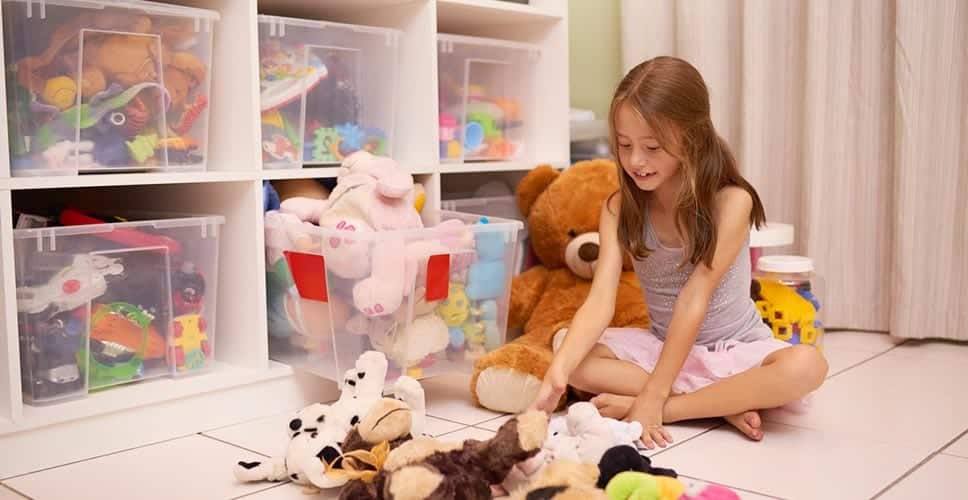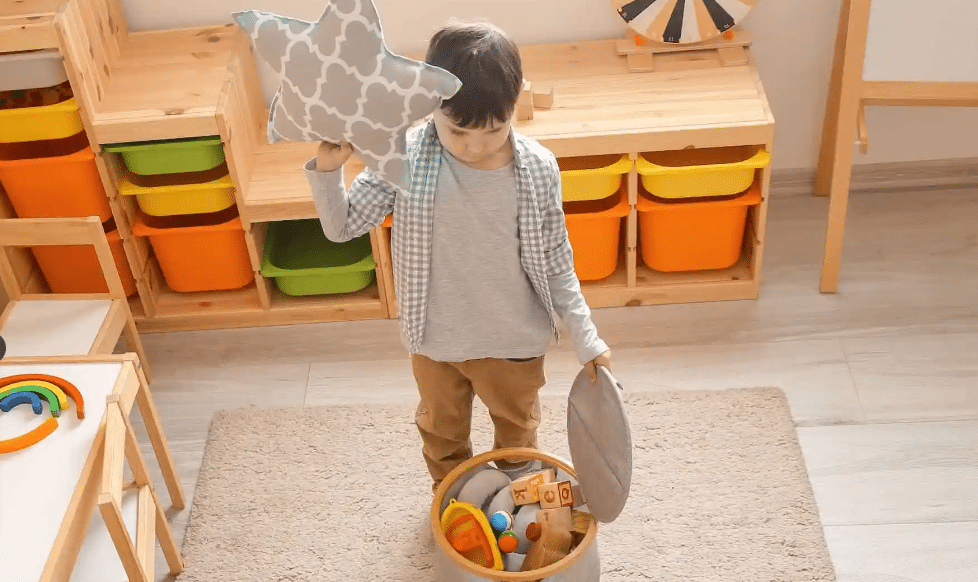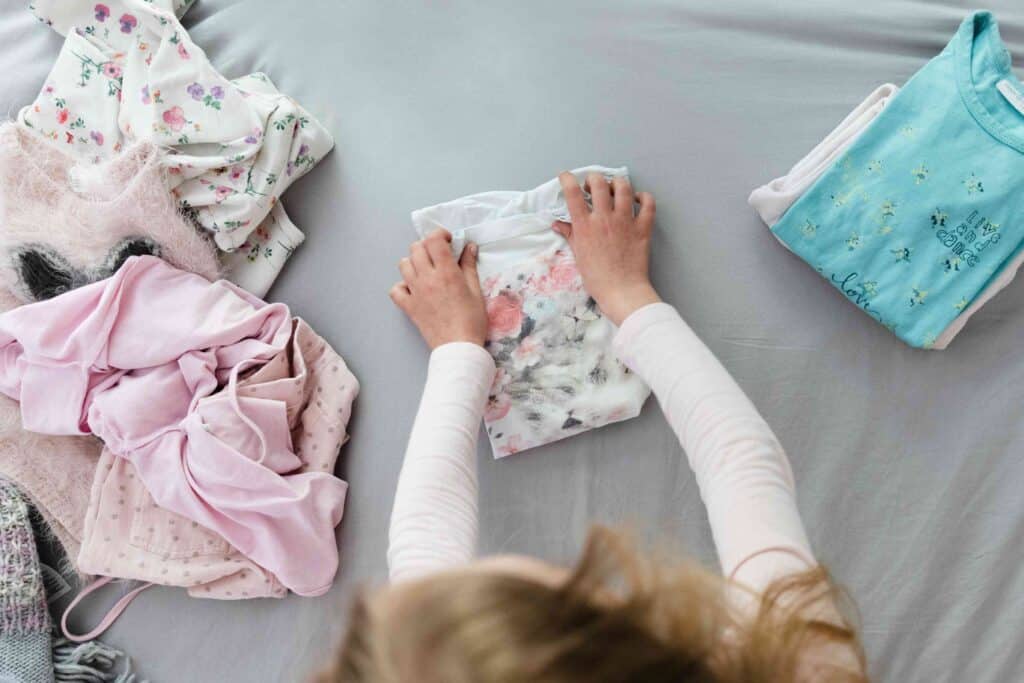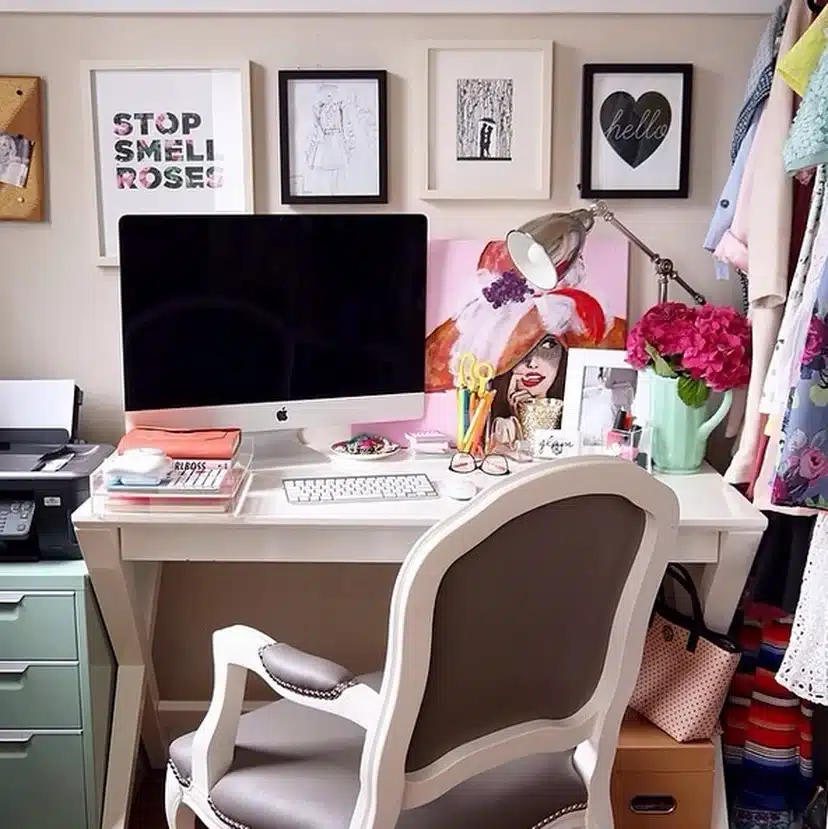| Getting your Trinity Audio player ready... |
We’ve all been there—a chaotic playroom strewn with toys, a kitchen where mysterious spills appear, and bedrooms that look like they’ve been hit by a tornado. When kids are in the house, keeping spaces organized can feel like an uphill battle.
But what if we told you that a big key to a tidy, more organized home might just be involving your little ones in the process? Not only does this make your life easier, but it also teaches your kids valuable skills they’ll carry into adulthood.
In today’s post, we’ll walk you through the why’s and how’s of organizing with your children. From age-appropriate tasks to fun organization games, let’s turn what usually feels like a chore into an enriching family activity!
The Importance of Involving Kids in Organizing
Teaches Responsibility
Children learn by doing. By involving them in the process, you’re teaching them to take responsibility for their belongings and their living spaces. It’s a foundational skill that will pay dividends in many areas of their life.
Builds Skillsets for Life
Learning how to sort, declutter, and maintain an organized space are skills that will serve your children well into their teen years and beyond—possibly saving them from a chaotic college dorm room or a cluttered first apartment.
Enhances Cognitive Development
Believe it or not, organizing tasks can help with your child’s cognitive development. Sorting toys by type or color, for example, aids in categorization—a crucial skill in early childhood development.
Age-Appropriate Tasks Home Organization Tasks
Not all organizing tasks are suitable for all ages, so here’s a quick guide to what tasks are appropriate for different age groups:
Toddlers (2-3 Years)
- Picking up toys
- Placing dirty clothes in the laundry hamper
Preschoolers (4-5 Years)
- Sorting toys into designated bins
- Setting the table for meals
School Age (6-9 Years)
- Folding and putting away laundry
- Organizing school supplies
Preteens and Teens (10+ Years)
- Assisting in meal planning and prep
- Organizing their study and workspace
Making Organizing Fun
Sticker Charts
One of the most straightforward ways to encourage participation and track progress is through sticker charts. Develop a chart featuring different organizational tasks like picking up toys, making the bed, or sorting laundry. Every time your child completes one of these tasks, they get to put a sticker in the corresponding box.
Over time, accumulated stickers can be traded in for small rewards like a favorite treat or extra storytime. This visual method not only helps your child understand the value of consistent effort but also adds an element of fun to the organizing process.
Organizational Games
Turn home organization and tidying up into a fun and exciting game to make the experience more engaging for your children. Set a timer and see who can pick up the most toys in two minutes, or make it a family challenge to see who can sort the laundry the fastest. You can even keep a leaderboard for added competition and excitement. The key is to make the activity dynamic and interactive, helping children associate organization with a positive, enjoyable experience.
Themed Days
To keep the organizing process from becoming monotonous, introduce ‘Themed Organizational Days.’ For example, designate Tuesdays for toy organization and call it ‘Toy Tuesday.’ Use Wednesdays to focus on clothes and dub it ‘Wardrobe Wednesday.’
Each themed day can come with its own set of fun activities or challenges, such as creating DIY clothing labels on Wardrobe Wednesday or building a toy “zoo” for stuffed animals on Toy Tuesday. Not only will this add variety to your routine, but it also makes it easier for your child to remember and look forward to their organizing responsibilities.
By incorporating these interactive and fun methods into your organizational routine, you’ll keep your child engaged while teaching them invaluable life skills.
Motivating Teens: Leverage Independence and Responsibility
When it comes to teens, sticker charts and games may no longer have the same appeal. However, the desire for independence and the willingness to take on responsibilities often do. Use this phase of their development to your advantage when motivating them to organize.
- Offer Choices: Teens appreciate having a say in matters that affect them. Give them options when it comes to organization—do they prefer shelves or drawers for their stuff? Would they like to choose their own organizational tools or color schemes? Empowering them to make these choices increases their investment in the process.
- Set Real-World Goals: Explain how being organized can benefit them in the real world. Whether it’s time management aiding them in school or an organized resume folder helping them at a future job interview, making these connections can turn organization into a valuable skill rather than a chore.
- Provide Incentives That Matter: Think about what motivates your teen. It could be extra screen time, a later curfew, or even monetary incentives. Align the rewards with the effort required for the organizational tasks, making sure they see a tangible benefit from participating.
- Acknowledge Effort and Success: Teens, just like adults, appreciate acknowledgment and praise. Regularly highlighting their efforts and successes in organization can serve as an emotional reward and an encouragement for future endeavors.
- Let Them Take Ownership: Once a particular organizational system is in place, allow them to take charge of maintaining it. This ownership not only frees you from the task but also instills a sense of responsibility and pride in them.
Understanding that teens are at a different developmental stage helps tailor your organizational approach, making it more relevant and engaging for them. This not only aids in keeping your home tidy but also prepares them for adulthood, where organizational skills will be increasingly important.
Involving Kids in Home Organization Decision-Making
While the ultimate say in what stays and what goes might be yours, involving kids in the decision-making process is empowering for them. They could decide which toys to keep and which to donate, or they could choose organizational tools and supplies during your next shopping trip.
Quick Tips for a Lasting Impact
- Be Consistent: Make organizing a regular activity.
- Be Patient: It may take time for your kids to get the hang of it.
- Be a Role Model: Show them that you also take organizing seriously by maintaining common areas and your own spaces.
- Celebrate the Wins: Always commend their efforts, no matter how small the achievement.
Organizing is a life skill, and there’s no better time to learn it than in childhood. Not only will involving your kids in the process make your home a tidier place, but it will also equip them with valuable skills for the future. So the next time you feel overwhelmed by clutter, remember—you’ve got some eager little helpers who are more than ready to learn and lend a hand.
Feeling inspired to tackle organization with your little ones? Just Organized by Taya is here to guide you every step of the way. If you loved these tips but could use some expert guidance to implement them, don’t hesitate to reach out for a personalized consultation. Let us help you transform your home into a well-organized, child-friendly oasis that fosters growth and learning. Contact us here to get started.
- The Post-Christmas Reset: What to Do (and What to Skip) This Weekend - December 26, 2025
- The Week-Before-Christmas Survival Guide: Last-Minute Gift Organization Tips - December 18, 2025
- 7 Things in Your Kitchen Right Now That Need to Go - December 16, 2025





